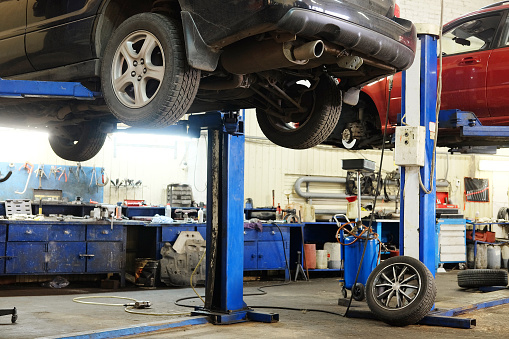All Categories
Featured

Your cars and truck's engine is the heart of your car, and keeping it in leading problem is vital for optimal performance and long life. Routine engine tune-ups are a wonderful means to preserve your vehicle's wellness, enhance gas efficiency, and stay clear of pricey fixings down the roadway. Whether you're an automobile fanatic or somebody who simply intends to keep their car running efficiently, these engine tune-up suggestions will help you get the most out of your automobile.
- Replace Spark Plugs. Trigger plugs play a critical function in starting your engine and making sure smooth burning. Over time, trigger plugs can come to be dirty or put on out, resulting in misfires, reduced gas effectiveness, and harsh idling.
During an engine tune-up, check and replace your spark plugs if necessary. The majority of lorries require new stimulate plugs every 30,000 to 100,000 miles, depending on the type. Regularly changing spark plugs makes certain appropriate ignition and optimum engine performance.
- Examine and Tidy the Air Filter. The air filter protects against dust, dust, and debris from entering your engine. A clogged up or unclean air filter restricts air flow, causing your engine to work harder and burn even more gas.
Check your air filter throughout a tune-up and change it if it's filthy. In dirty settings or areas with heavy pollution, you might require to alter the air filter a lot more regularly. A clean air filter can improve fuel effectiveness and expand the life of your engine.
- Check and Change Belts and Hose Pipes. Belts and hoses are important for various engine functions, such as powering the alternator, water pump, and cooling system. Over time, these components can fracture, battle royal, or wear, possibly resulting in breakdowns.
Throughout a tune-up, check belts and tubes for indicators of wear and replace them if required. Changing these parts proactively can save you from costly repair services and stop unexpected failures.
- Tidy the Fuel System. Your gas system, consisting of the gas injectors and fuel lines, can accumulate dirt and carbon down payments in time, decreasing engine performance. Cleaning the fuel system during a tune-up aids boost performance and fuel economic climate.
You can utilize a gas system cleaner or have a specialist mechanic carry out an extra thorough cleaning. This step is especially crucial for older cars or automobiles that often drive in stop-and-go website traffic.
- Examine the Battery and Billing System. A healthy battery is essential for starting your engine and powering electric parts. During a tune-up, examine the battery terminals for corrosion and guarantee the links are tight.
Check the battery's voltage and change it if it shows signs of weakness. Furthermore, have the generator and charging system examined to ensure your battery remains charged throughout procedure.
- Modification the Engine Oil and Oil Filter. Oil changes are an essential component of engine maintenance. Engine oil lubes moving parts, decreases friction, and helps control engine temperature. Gradually, oil comes to be contaminated and loses its efficiency.
Throughout a tune-up, change the engine oil and oil filter to maintain your engine running efficiently. Follow your lorry's producer referrals for oil kind and change periods.
- Check the Cooling System. The air conditioning system prevents your engine from overheating. Gradually, coolant can weaken or become polluted, decreasing its efficiency.
Inspect the coolant degree and problem during a tune-up, and flush and change it if needed. Examine the radiator, water pump, and hoses for leakages or damage. A well-maintained air conditioning system assists your engine run at the right temperature and protects against getting too hot.
- Check the Ignition System. A faulty ignition system can cause beginning problems and lowered engine efficiency. Throughout a tune-up, evaluate the ignition coils, representative cap, and rotor (if appropriate) Replace any type of parts that show indicators of wear or damages to make certain smooth and reputable engine procedure.
- Listen for Uncommon Noises. Throughout a tune-up, take the chance to pay attention for any kind of unusual engine noises, such as knocking, ticking, or hissing. These sounds can indicate underlying issues, such as shutoff troubles, loose parts, or exhaust leakages. Addressing these troubles early can prevent extra substantial damage.
- Use High Quality Parts and Fluids. When carrying out an engine tune-up, always make use of high-grade parts and fluids that fulfill your automobile manufacturer's specs. Economical or inaccurate parts can jeopardize your engine's performance and dependability.
Final Thought: A Well-Tuned Engine is Key to Longevity. Routine engine tune-ups are necessary for preserving your auto's efficiency, performance, and integrity. By changing worn components, cleansing essential systems, and attending to potential issues, you can keep your engine running efficiently for many years ahead. Whether you're doing it yourself or depending on a relied on mechanic, buying tune-ups is a wise way to secure your car and enjoy a much safer, smoother ride.
Latest Posts
Explore Limited-Time Auto Repair Offers in Chicago at Montclare Auto Repair
Explore Auto Services & More: Complete Auto Care Solutions from Montclare Auto Repair
Specialist Residential Roof Solutions You Can Count On
More
Latest Posts
Explore Limited-Time Auto Repair Offers in Chicago at Montclare Auto Repair
Explore Auto Services & More: Complete Auto Care Solutions from Montclare Auto Repair
Specialist Residential Roof Solutions You Can Count On